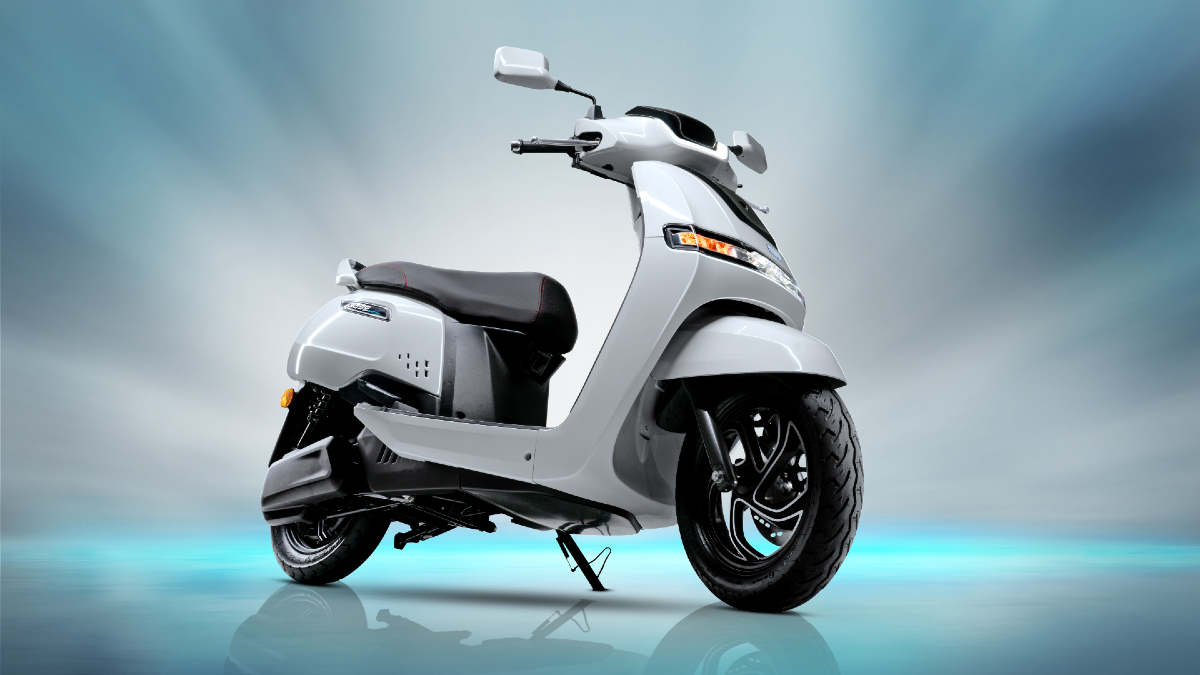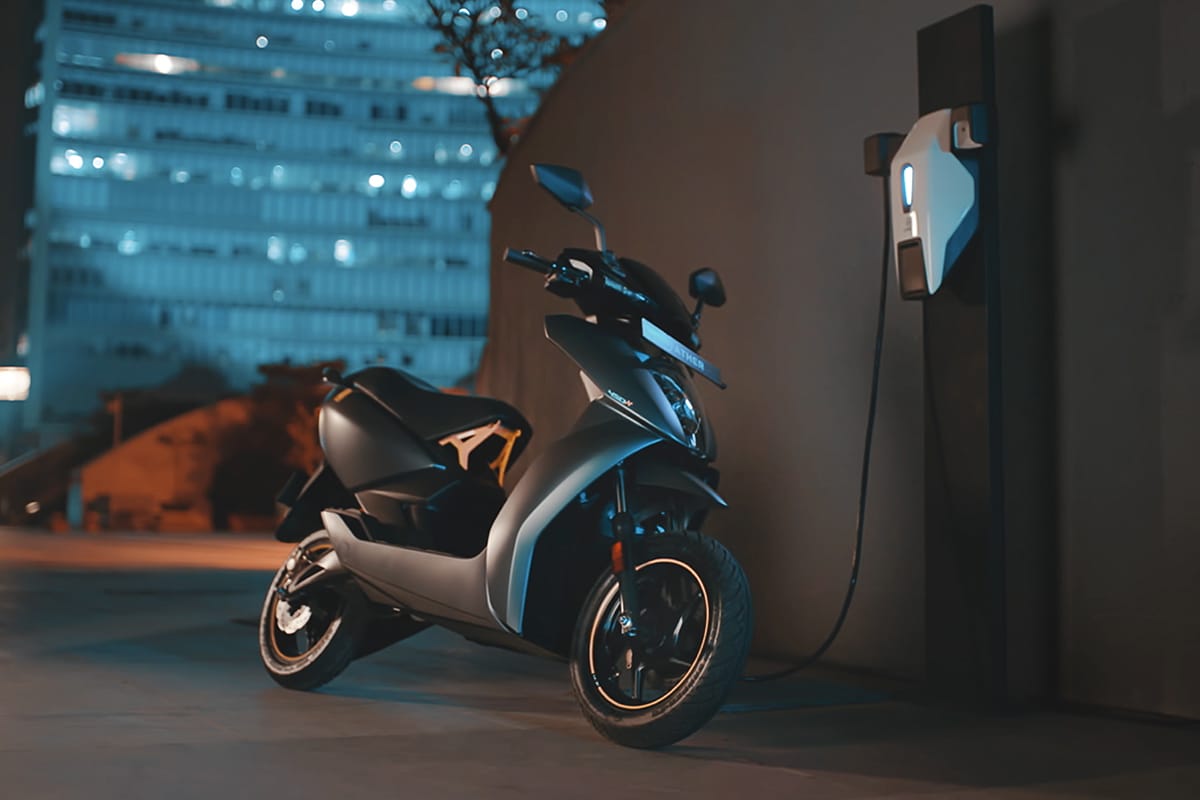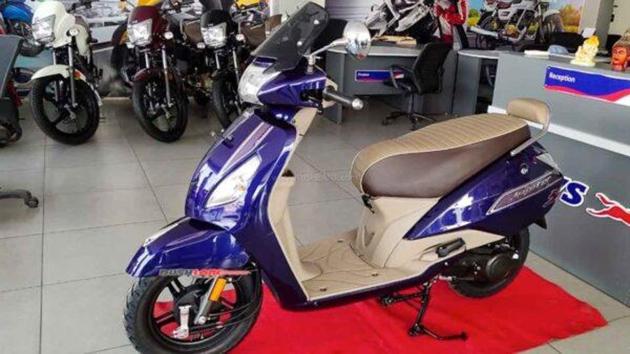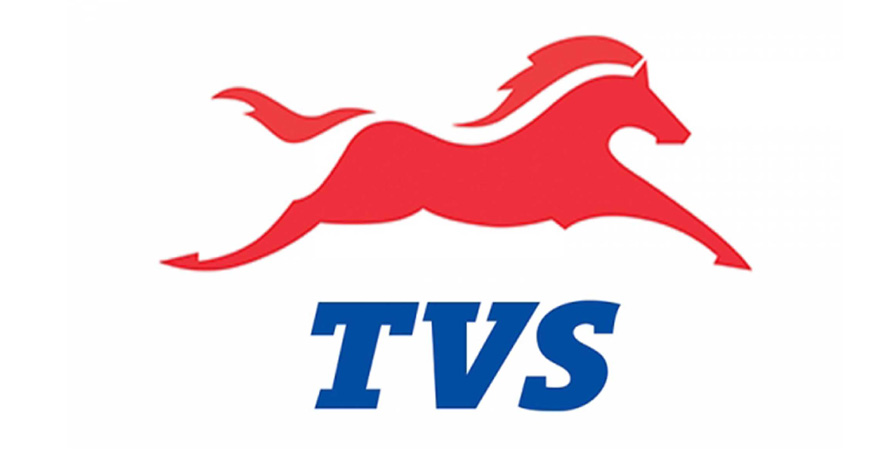EV two-wheeler sales improve in August, TVS Motors market share grows to 25%

EV two-wheeler sales improve in August, TVS Motors market share grows to 25%
The electric two-wheeler (E2W) market in India has witnessed a notable recovery in sales during the month of August, following a dip in June due to subsidy reductions. In August, the country saw sales of over 59,000 electric two-wheelers, a significant improvement compared to the 45,000 units sold in June. Moreover, the August sales of 59,000 units were marginally better than July, indicating a trend of steady growth in the market.
This resurgence in sales is seen as a positive sign for the Indian electric vehicle (EV) industry, suggesting that it is maturing and becoming less reliant on government subsidies to sustain growth. It reflects the increasing consumer interest in electric two-wheelers as a sustainable and cost-effective mode of transportation.

Industry insiders highlight the importance of affordability in driving future growth in the EV sector. Affordable electric vehicles are likely to play a pivotal role in expanding the market further, making them accessible to a broader segment of the population. This aligns with the government’s efforts to promote clean and green mobility solutions, including electric vehicles, as part of its sustainable transportation agenda.
Overall, the revival in electric two-wheeler sales in August signifies the resilience and potential of the Indian EV market, even in the absence of subsidies, and underscores the importance of affordability in sustaining this growth trajectory.

TVS Motors experienced a significant surge in its electric two-wheeler sales in August, marking a remarkable uptick of approximately 40 percent. During this month, the company sold 14,584 units of its affordable electric scooter, the iQube. This achievement also pushed TVS Motors beyond a significant milestone, as the total iQube sales crossed the 1.5 lakh mark.
The surge in sales provided a substantial boost to TVS Motors’ market share in the electric two-wheeler segment. The company’s market share increased from 19.6 percent in the previous month to a notable 25 percent, underscoring the growing popularity and demand for the iQube electric scooter.
In contrast, the market leader in the electric two-wheeler space, Ola Electric, experienced a decline in sales. Ola Electric’s sales dropped by 10 percent in August, with 17,389 units sold.

TVS Motors made its foray into the electric two-wheeler market in 2020 with the introduction of the iQube. Priced competitively between Rs 1.23 lakh to Rs 1.38 lakh in Delhi, the iQube competes in the electric scooter segment against notable rivals such as the Ather 450X and Bajaj’s Chetak.
The surge in sales for TVS Motors’ iQube electric scooter reflects the increasing consumer interest in affordable and environmentally-friendly mobility solutions, as well as the company’s effective positioning in the electric two-wheeler market. This trend suggests a promising future for electric two-wheelers in India as they gain traction in the market.
TVS Motors is gearing up to significantly increase the production of its electric scooter, the iQube, in response to the surging demand in the market. Sudarshan Venu, the Managing Director of TVS Motors, revealed the company’s plans to ramp up iQube production to meet growing consumer interest and to capitalize on the expanding electric two-wheeler market in India.

Market experts are anticipating robust sales figures for the iQube in September, with expectations of around 20,000 units being sold during the month. This strong demand underscores the growing popularity of electric scooters in India, particularly in the affordable and premium segments.
Sudarshan Venu expressed the company’s confidence in the Indian market’s growth potential and their commitment to capturing a significant share of it. TVS Motors aims to capitalize on this opportunity and further enhance its market presence. He mentioned that the iQube is performing exceptionally well, and in response, the company is planning to increase production to a range of 25,000 to 30,000 units per month.
This strategic move by TVS Motors not only highlights their confidence in the electric two-wheeler segment but also signifies their commitment to meeting the evolving mobility needs of Indian consumers with sustainable and environmentally-friendly transportation options. It’s evident that TVS Motors is positioning itself as a key player in India’s electric vehicle revolution.
The electric two-wheeler market in India is witnessing significant activity and competition, with several key players vying for market share. Ola Electric, with a market share of approximately 29.31 percent, continues to lead the segment, followed by TVS and Ather Energy.
Ola Electric had an eventful August, expanding its product portfolio to include five scooters that cover a range of popular price points. The company’s Chief Business Officer, Ankush Aggarwal, anticipates strong sales during the upcoming festive season, believing that high consumer demand will drive an inflection point in the electric vehicle (EV) industry.
Ather Energy, another prominent player, sold approximately 6,835 units in August, marking a 2 percent increase from July. The company aims to double its market share to around 30-40 percent in the coming years with the launch of its affordable 450S scooter in the 125cc category. Ather Energy has experienced a surge in pre-orders for its new scooters and plans to ramp up production to meet this demand.
Bajaj Auto, known for its electric Chetak scooter, is catching up with Ather Energy in terms of sales volumes. Bajaj sold around 6,137 units of the Chetak in August, a 50 percent increase from July’s figures.
Hero MotoCorp, which entered the electric vehicle market with the Vida scooter in October 2022, sold approximately 901 units in August, showing a 9 percent decrease compared to July. Hero Electric, meanwhile, recorded sales of 765 units, down 2 percent from the previous month.
The electric two-wheeler market in India is maturing, with various players offering a diverse range of affordable options. Competition is expected to intensify as more companies vie for market share and increase production. Additionally, players like Hero and Bajaj are playing crucial roles in rural markets, which is expected to become more evident in the coming months. As the industry evolves, it’s clear that electric two-wheelers are gaining traction and acceptance among Indian consumers.




